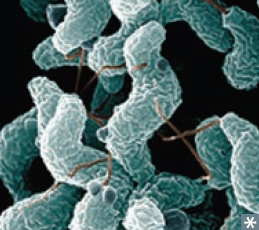isa
I Am A USMLE Freak
Wants to meet Doctors : I Want To Meet Other Doctors Preparing For USMLE
Articles
9
Followers
18
profile/5139fa2019.jpg
Isa

Credit: Natallia - stock.adobe.com
What Is A Hernia And Why Should You Know About It?
~1.3 mins read
What is a Hernia?
You can tell that you or a person has a hernia when you can feel a bulge in any area of the abdomen (what we often call stomach). This bulge can easily be pushed back inside and everything feels normal again.When you should visit the hospital?
If you can easily push back the contents into the abdominal cavity, you can delay treatment or going to the hospital, but the moment it starts getting harder to push the content back inside or you feel pain in the area or you feel pain when you try to push it, back you should go as soon as you can to the surgical department.
What is Incarceration?
When the herniated content can no longer be pushed back into the abdomen or pelvic region, it is said to be incarcerated. Please visit the hospital if this happens.
What is Hernia Strangulation?
When a herniated content is incarcerated for too long a period without attention, the blood supply to the region may reduce (ischemia) and the incarcerated tissue may start to die (necrosis). This is called strangulation.
What is a complicated hernia?
A hernia is said to be complicated when you can no longer push the protruded content back into the abdomen.
It can also be accompanied by signs of inflammation such as Pain, Redness, and Fever.
What are the common types of hernia?
1. Diaphragmatic hernia
This can be either a Sliding hiatal hernia or a Paraesophageal hernia
2. Inguinal hernia
This can be direct or Indirect hernia
3. Femoral hernia
profile/5139fa2019.jpg
Isa

Image source: USMLE first aid. Please buy a copy to get more info on this Mnemonic
What Is Campylobacter Jejuni (CJ) Bacteria And How Can It Infect You?
~1.4 mins read
Campylobacter jejuni is a Comma or S-shaped bacteria that commonly causes bloody diarrhea, especially in children.
How can this Bacteria Infect you?
The Campylobacter jejuni bacteria can infect you in the following ways:
1. When you eat Chicken or Meat that is not properly cooked.
2. When you consume raw milk that has been contaminated.
3. Having direct or indirect contact with someone who is already infected.
This can happen if the infected person forgets to wash their hands properly after using the toilet.
4. Domesticated animals can also be a source of infection.
For example, Dogs, Cats, Pigs etc
What are the complications of getting infected with Campylobacter jejuni?
Infection with this bacteria can lead to
1. Guillain-Barré syndrome
2. Reactive Arthritis
How can infection with this bacteria be diagnosed?
Your lab technician would look for the following characteristics before confirming an infection with CJ
1. Gram-negative bacteria
2. Coma or S-shaped bacteria
3. Bacteria has polar flagella
- A pollar flagellum is present at one end of the bacteria, but can rotate, clockwise or anti-clockwise depending
4. Bacteria is Oxidase positive
- Oxidase positive organisms can break down oxygen
5. Bacteria grows at a high temperature (42 degree centigrade)
Should I be bothered if I get infected with Campylobacter jejuni?
No, many times when this bacteria infects people, it goes away on its own, you just have to drink plenty fluids preferably Oral Rehydration Solution.
Precaution
Please report to the nearest clinic if the number of stools per day are getting beyond 5 or if the symptoms are causing you significant distress
Advertisement

Link socials
Matches
Loading...
